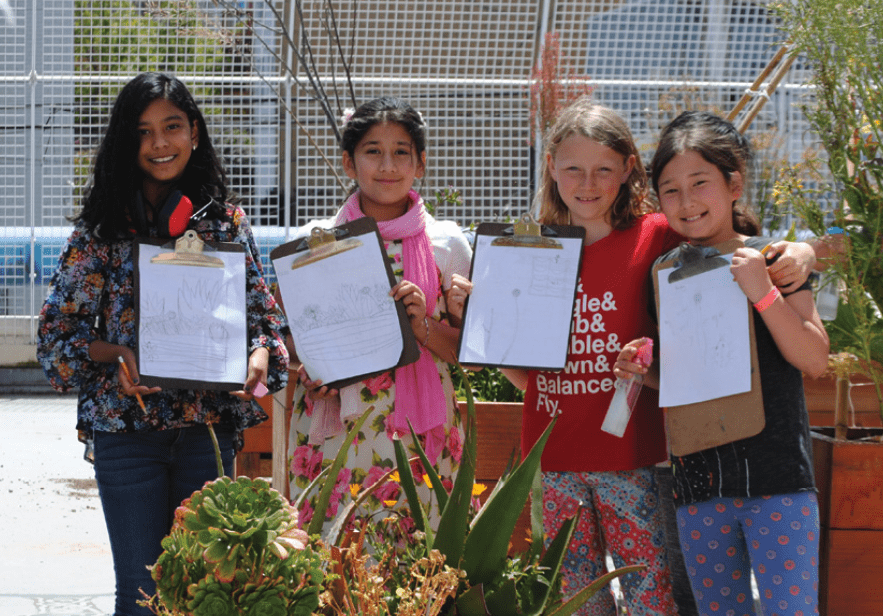What is a Theory of Action?
Great question, I’m so glad you asked. There are several definitions, but here are a few that will give us a general understanding.
A theory of action is a hypothesis about what will happen when a set of strategies is implemented. Developing a theory of action requires using critical judgment about which strategic actions will lead to what desired results. It is the process of connecting what we plan to do with what we hope to get.
A theory of action is a connected set of propositions, a logical chain of reasoning that explains how change will lead to improved practices. It “connects the dots” explaining in a commonsense way which features are expected to produce results that lead to the final desired outcome.
A theory of action maps out simply, in a logical order, what we think needs to happen in order to reach long-term, sustainable change in communities.
The Process for CAELI’s Theory of Action
In 2021, CAELI evolved its governance structure to emphasize distributed leadership, increase its membership, and expand the diversity of voices from across California. We presently have two co-chairs, an executive committee, and seven Innovation Hubs contributing their ideas and hard work and guiding the initiative forward. Together, these groups make up the CAELI Leadership Council, which now has over 70 members. With all these changes, it was a logical next step that in 2022, CAELI members reviewed and revised its entire Theory of Action.
The process to revise the Theory of Action began with some research and framing, starting with reviewing the strategies outlined in the 2015 Blueprint for Environmental Literacy, which was the seminal document that got the ball rolling for this. CAELI’s Leadership Team, made up of the co-chairs and Ten Strands support staff, reviewed the vision, statement of purpose, guiding principles, and pillars outlined in the original version of the Theory of Action. CAELI focused on three pillars:
- Creating a supportive statewide context for environmental literacy.
- Incrementally infusing environmental literacy into statewide initiatives related to curriculum, professional learning, and assessment.
- Developing innovative, leading-edge county office of education and district exemplars to demonstrate what environmental literacy looks like at different levels of the K–12 system.
The leadership team engaged the CAELI community in a number of design activities to elicit input and feedback for a revised theory of action. Karen Cowe, Ten Strands CEO and then CAELI project director, kicked off the design process by providing a wonderful reflection of CAELI’s Theory of Action from the prior six years. The CAELI Leadership Council members discussed what they heard and presented some ideas for change. Craig Strang, CAELI co-chair, did an incredible on-the-spot analysis of the themes that emerged from the discussion:
- Center equity
- Measure and document our progress
- Acknowledge the importance of Ten Strands as the backbone or central nervous system of the initiative
- Address the intersectionality of this work with other sectors, such as climate literacy, outdoor learning, and health and wellness
- Emphasize the role of community-based partners
- Identify guiding stars or leading-edge exemplars to share their best practices.
Drawing from these themes and the discussion notes, the CAELI Leadership Team, and Ten Strands support staff composed a draft of the revised Theory of Action. The executive committee members then reviewed the draft during their February 2022 retreat, where additional feedback led to the next iteration. The entire CAELI Leadership Council had an opportunity to review and provide feedback in March and once again in June prior to the final version, which was completed during the summer.
It was essential and very intentional that the process described above include the voices of the entire CAELI Leadership Council membership. This meant that there were multiple iterations of the Theory of Action and that it took nearly a year to complete. By doing so, the final version is one that every CAELI member contributed to and possesses ownership of. The final Theory of Action is the collective thinking of this group of statewide leaders in advancing environmental literacy.
After much success over the past few years of integrating environmental literacy, via California’s Environmental Principles and Concepts, into state content frameworks, CAELI’s new members brought additional entry points, such as sustainable and climate-resilient schools efforts, green careers, and an understanding of the key role that county offices of education can play in leading regional initiatives. The global pandemic also highlighted the need for connection, care, and trauma-informed practices. While CAELI’s core strategy remains the same, the new Theory of Action doubles down on the commitment to an equity-driven approach, striving to create large-scale, systemic, long-term change with an emphasis on prioritizing those who have been most marginalized and most underserved – including low income and communities of color.
Theory of Action Snapshot
The revised Theory of Action has already begun to guide CAELI’s work in the 2022-2023 season. Collectively, CAELI members and Innovation Hubs are committed to educating the next generation of students, as they are our future leaders and decision-makers and will be instrumental in addressing the environmental challenges we face today and in the years ahead. CAELI strives to change the education system to ensure that all students at all grade levels, with special emphasis on students of color and low-income students, routinely have outdoor and classroom-based environmental experiences that transform learning and improve physical, emotional, and psychological health and well-being. In doing so, the CAELI Leadership Council actively works for equity and justice and dismantling systems of oppression and racism.
The Theory of Action includes these five guiding principles:
- Equity, Justice, and Accessibility;
- Scalability;
- Shared Leadership and Collaboration;
- A Wide Range of Environment-Based Experiences; and
- Connection and Care.
These principles guide CAELI decisions about what actions to prioritize and serve as a lens to continuously look through as the CAELI Leadership Council and Innovation Hubs move forward with collective efforts.
The CAELI Theory of Action is based on the premise that in order to achieve environmental literacy for every student in California, CAELI efforts must be intentional to work in the following five domains:
- Community Partnerships;
- Policy and Advocacy;
- Sustainable and Climate Ready Schools;
- Sustainable Funding; and
- Teaching and Learning.
CAELI Innovation Hubs have already begun to focus priorities and working groups on these domains and are off to a successful start.
Theory of Action Metrics and Outcomes
The development and building out of the Theory of Action is ongoing. At present, CAELI members are discussing which metrics to use for each of the five domains in order to obtain both quantitative and qualitative data that measures CAELI’s progress and impact. Shared goals and outcomes are critical to the success of this collective action network, and each iterative process of this Theory of Action continues to be inclusive of input and ideas from all CAELI Leadership Council members.
As we carry the leadership of these efforts forward, CAELI Co-Chairs and Ten Strands CAELI project director and support staff are grateful for the ongoing dedication and commitment of the many incredible CAELI leaders who are so dedicated to this shared leadership process and advancing environmental literacy in California.







